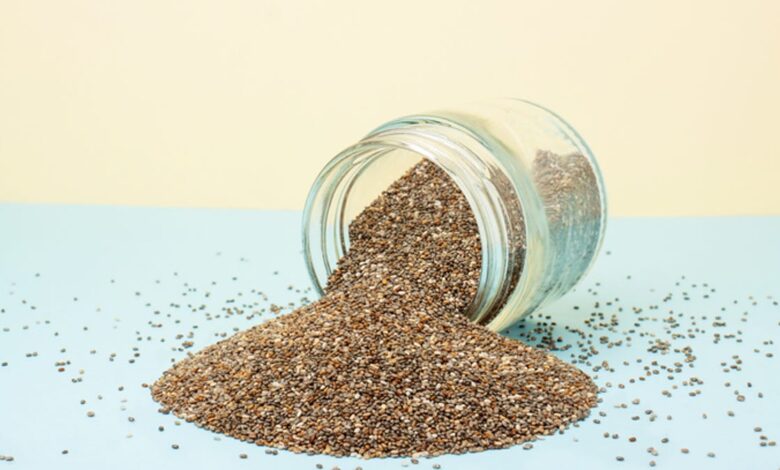Best Fiber Supplements of 2025

Fiber plays a key role in maintaining your overall health and a healthy digestive system. Apart from helping you digest food properly and keep your gut health in check, it has health benefits like lowering cholesterol, preventing constipation and even assisting with weight loss. Fiber even plays a role in regulating blood sugar levels. However, despite its importance, most people aren’t getting enough fiber from their diet.
Read more: 22 of the Best Gifts Under $50 for 2025
Adding fiber-rich foods like lentils and chia seeds can help bring some soluble and insoluble fibers into your system, but you can also consider taking dietary supplements to increase your fiber intake and keep your digestive tract in top condition. With that said, the number of supplements on the market can make choosing the right one to get enough fiber overwhelming.
Our CNET experts have years of experience researching vitamins and supplements. We’ve used this knowledge to identify the top fiber supplements on the market. Explore our top picks for the best dietary fiber supplements to help boost your fiber intake.
What is the best fiber supplement?
There is a lot of variety in fiber supplements, from food sourced — where its found naturally — to sugar-free to organic options. If you’re looking for a budget fiber supplement, consider Benefiber Original. It’s super affordable and easily dissolves in both hot and cold liquids.
Before we dive deeper into our curated list of the six best fiber supplements, there’s one thing you need to know. There are two types of fiber in supplements: soluble and insoluble fiber. Soluble fiber dissolves in water and helps lower blood sugar and cholesterol levels. Insoluble fiber is the type that helps move food through your digestive system. So it isn’t only about eating more fiber but also about consuming the right kind of high fiber foods. OK, now you’re ready.
Best fiber supplements of 2025
Photo Gallery 1/1
Benefiber Original is wheat dextrin, a byproduct of milling wheat. It takes our spot as the best budget fiber supplement thanks to its low cost and versatility. That low price means it has less fiber per serving than other brands.
Benefiber only has soluble fiber, which makes it a great option for people who want to use a fiber supplement to manage their blood sugar. Soluble fiber dissolves in water and is good for both diarrhea and constipation, while insoluble fiber helps with constipation. This fiber supplement is tasteless and dissolves easily in cold and hot liquids. You can also add it to food while you cook; it won’t thicken or add flavor.
Photo Gallery 1/1
Vitafusion Fiber Well Fit Gummies is one of the best gummy fiber supplements you can get for children or people who have trouble swallowing pills. These gummies are sugar-free and come in natural berry, peach and strawberry flavors. User reviews rave about the taste and how easy these gummies are to chew. They also praise the effectiveness of this product.
With each serving, you also get essential B vitamins, folic acid and biotin. Many fiber supplements don’t have other vitamins or minerals included.
Photo Gallery 1/1
If you’re looking for a food-source fiber supplement, consider Spectrum Essentials Organic Ground Chia Seeds. These ground chia seeds are a whole food form of fiber. They’re a little less versatile than other fiber supplements, as they have a nutty taste and don’t dissolve into drinks. So you’ll always know the chia seeds are there, but if you like the taste, they can give water, smoothies or food a boost of fiber.
Chia seeds are full of fiber and offer a great way to aid digestion. As a bonus, chia seeds also have omega-3 fatty acids, which have been linked to decreasing the risk of heart attacks or strokes.
Photo Gallery 1/1
Metamucil sugar-free fiber powder is a natural psyllium husk powder four-in-one fiber supplement that’s meant to help digestive health, control appetite and lower cholesterol and sugar levels. A review of research supports the claims that psyllium husk has cardiovascular, cholesterol and blood sugar benefits.
You can choose from either unflavored, berry or orange powders. Note that reviews suggest that the strong orange flavor can be polarizing — you either like it or you don’t. Other users say that Metamucil is smooth and easier to drink than other brands, allowing you to add it to water, juice or smoothies without issue.
Photo Gallery 1/1
If you’re looking for a budget-friendly fiber supplement that includes both soluble and insoluble fiber, consider NOW Supplements’ psyllium husk powder. It’s a good addition to your diet if you struggle with constipation. You can bake it into food or add it to your daily smoothie.
This fiber supplement has the highest fiber concentration on the list, with seven grams of dietary fiber, one gram of insoluble fiber and six grams of soluble fiber. You also get 8% of the recommended daily value of iron for the day.
Photo Gallery 1/1
Garden of Life Organic Fiber Supplement contains no added sugars. It’s made from five natural ingredients, including acacia fiber, organic orange peel, organic baobab fruit, apple peel and cranberry seed. Each serving delivers 5 grams of prebiotic fiber. You can choose from unflavored powder or citrus. If you want to mix in the powder with drinks or food, we recommend the unflavored version.
This fiber supplement includes both soluble and insoluble fiber, making it one of the best fiber supplements for constipation. Garden of Life is a certified B corporation. This means that all of its products produced comply with social and environmental standards.
When choosing the best fiber supplements for this list, we considered the price, type of fiber supplement and ingredients. Additionally, as the supplement industry isn’t well regulated by the FDA, we relied on additional certifications that vouch for the quality and purity of products. We did not test these fiber supplements in-house.
Show more
There are a lot of fiber supplements on the market, all varying by price, type and form. When you start your search, keep these key factors in mind:
- Type of fiber: There are two types of fiber: soluble and insoluble. Soluble fiber benefits your cholesterol and blood sugar. In comparison, insoluble fiber is what will help with constipation and regular digestion.
- Dosage: According to Mayo Clinic, women should aim for 21 to 25 grams of fiber daily, while men should eat 30 to 38 grams. If you’re not getting enough fiber, you may consider a supplement. You should start with lower fiber content and slowly increase it over time. This way, you avoid side effects like bloating or excess gas.
- What’s in the supplement: Some fiber supplements may include additional sweeteners or gluten, while others may include other vitamins and minerals. Always keep your dietary preferences and limitations in mind.
- Form: Fiber supplements come in several forms, the most common being powder or gummy. Whole food fiber sources are also available, like chia seeds. Note that chia seeds won’t dissolve like a powder, and they also have a taste.
Show more
What are the benefits of taking fiber supplements?
How often should you take fiber supplements?






